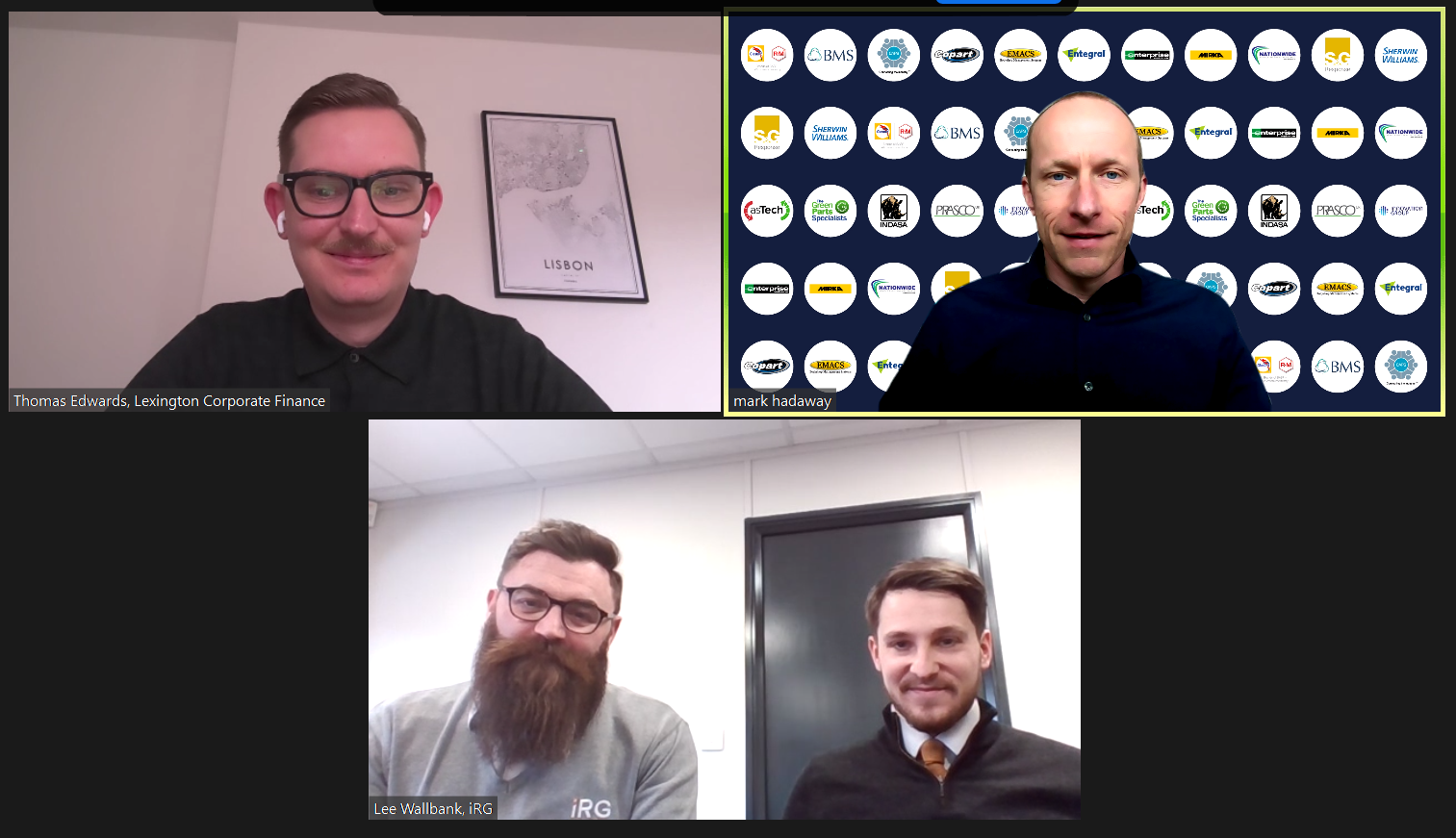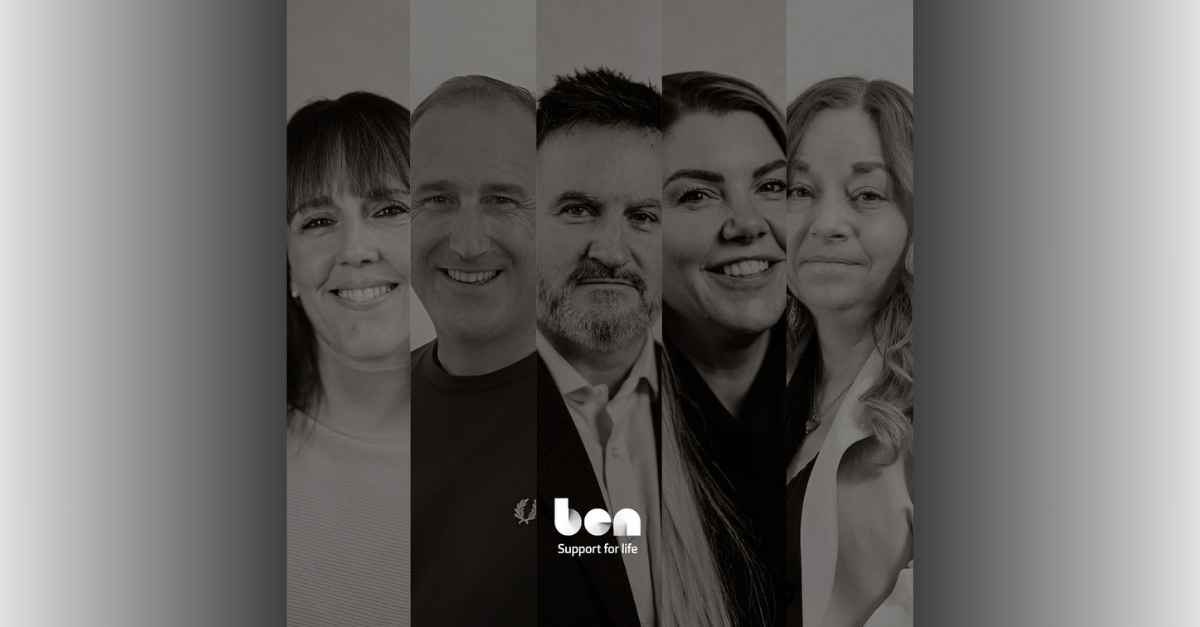For businesses in a state of flux in terms of ownership or expansion, the final session of the ARC360 digital event, The Future in Focus, lifted the lid on what options are available to them and what each might entail.
The session, Where Now?, invited the leadership team of iRG onto the panel following their management buyout (MBO) at the start of 2020, as well as director of Lexington Corporate Finance Thomas Edwards, who secured the necessary finance from investment firm ThinCats.
The session began by explaining the process of iRG’s MBO, and why it was so much smoother than is often the case.
Ambition
Lee Wallbank, managing director, iRG, said that ever since he joined the company in 2007 his ambitions have been clear, so when he broached the subject with previous owner Steve Peart on a long car journey it did not come completely out of the blue.
He said, ‘I never hid my ambition, so as I grew within the business I think it was seen as an inevitability. But Steve wouldn’t have just sold the business to anybody. Some people build a business to sell but this was his baby, so having the right management team in place was just as important to him as it was to me.’
That team eventually comprised Lee, managing director; Daniel Lewis, finance director; Joe Moore, operations director; and Phil Dawson, compliance and HR director, and when that team was in place Steve invited them to a meeting where the timing and terms for the MBO were set out.
Understanding
That though, is when the really hard work began.
Lee said, ‘There were eight or nine months of long days and long nights after that, but by going through the process, you start to understand the business a lot more and by the end you’ve got a much clearer picture of it.
‘It was hard at the time because you’re still doing your day job, but it was worth it. It probably helped that we’re friends first and foremost, and the work we had to do drove us closer as a foursome.’
The relationships they had with each other as well as with Steve made the entire journey far less problematic than it might have been.
Thomas explained, ‘Firstly, you can’t do an MBO unless all the gaps of the management team have been filled, but it’s still very difficult if there isn’t an open relationship with the vendor. It’s a very difficult discussion to have because most people are only going to sell their business once and it’s got to be exactly right. That’s where we come in. We act independently and take the sting out of the conversation.
‘But in this case the deal between vendor and management team was pretty much in place.’
Investment
The job then was to secure investment – either from a private equity firm or a debt funder, which will only be looking to get its money back and interest paid.
Thomas said, ‘We pulled together a financial model with a three-year growth plan and put together a prospectus of the business and the management team. Because of the strength and calibre of iRG there was quite a lot of interest, so we spent a long time selecting the right partner.’
iRG presented to about five potential partners, before selecting ThinCats.
Lee said, ‘We’ve always been a relationship business. We’ve never chased the last penny. We met several lenders to understand their business and what they could offer and ThinCats seemed the best solution.’
The deal was signed on 31 January 2020, and the wisdom of their choice became apparent almost immediately, with floods wiping out 20% of the group’s repair capacity within two weeks, before Covid-19 struck a few months later.
Dan said, ‘We’ve had a tough year and they know that, but that is when you find out what the partnership is really like. I speak to them nearly every day and they’ve been nothing but supportive.’
Needs
The future for iRG looks bright, and part of the deal includes further investment if and when required, but Thomas says every buyout is different and will require something different from an investor.
He said, ‘Vendors can sell their business through a management buyout or sell to trade. In some ways an MBO is easier, but the danger is that you’ve got two sides within the same business working on a deal and you need to make sure that trade doesn’t dip. If it does that could spook a potential investor.
‘But if you sell to trade you need to test the market, your timing needs to match their timing and you both need to be in the right place on the cycle.
‘Ultimately though, it’s all about the quality of the management team and the clarity of the plan, because as soon as you sign the initial term sheet, you enter into an extensive period of due diligence. Investors will crawl over everything so you have to make sure your house in order first.’
Exits
With Covid, many owners are understood to be considering their futures and possibly accelerating exit strategies. If so, Thomas believes the opportunity is there for them.
He said, ‘Private equity firms only make money by doing deals and there is a lot of dry powder out there in funds. I think there is a lot of opportunity out there for vendors looking to sell.’
The same is true for management teams ready to take the next step. It might be daunting and the initial conversation might be awkward, but Lee urges anyone considering it to take the plunge.
He said, ‘I’m sure there are people out there who want to do this. You’ve just got to have the conversation with no regrets. And it might be helpful for an owner to know there is someone in their business with the passion to take over.
‘Personally, I never thought we’d have the opportunity we’ve had, and even with Covid-19 and the flooding, we’d absolutely do it again.’

















